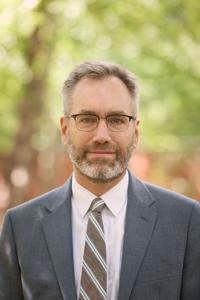The University of Arizona has done what few universities in this country have: Created a vice president for the arts position.
Andrew Schulz, who joined the faculty as dean of fine arts in August, has been appointed to the position.
“I’ve been thinking about it for a long time,” says Robert Robbins, president of the UA. “Going through strategic planning, I kept emphasizing that student success and research were important, but I thought we were missing the arts.”
Schulz is charged with elevating the profile of the arts on campus, integrating them into curricula outside the arts, and upping the profile of UA arts not only on the campus, but nationally and even internationally.
“This position shows the university sees the arts on par with other programs,” says Schulz. “We’ll bring culture to the students, incorporate it in student life — make it a seamless integration.”
Schulz plans to reach across campus and work with professors to integrate the arts in programs such as engineering and health sciences. He also will look beyond campus and into the community for collaborations with other arts organizations and businesses.
A priority for Schulz is much-needed updates in facilities.
“We know we need to envision a new art museum,” says Schulz. “And Centennial Hall and the acoustics. …” Centennial Hall is notorious for its poor acoustics.
But he doesn’t just want to refurbish what’s there. He wants to build, too.
“(Robbins) has talked about a new performance arts facility,” he says. “I think we need one with 800 to 1,200 seats. We have smaller halls and the big Centennial. But there are lots of events where the right size is 1,200.”
Robbins confirmed those needs.
“We need to reimagine an entire arts district between Second Street and East Speedway. We just have to have new facilities,” he said, agreeing that venues including Tornabene theater and Centennial Hall need upgrades.
Schulz also wants to make the arts more accessible to students, who already get discounted tickets to many performing arts events. He hopes to find a way to subsidize more student tickets so that they can afford to attend events, and he’ll explore new ways for them to encounter art on campus.
“The arts are essential to what it means to be human,” he says. “It’s important for students to know of the power of art.”
Of course, all of this will take money.
“We’ll need to rely a lot on philanthropic partners,” he says. “A big and exciting vision will attract new partners. The university will launch a new capital campaign … There are challenges with the budget and many competing priorities. We have to make sure the arts remain a priority.”




